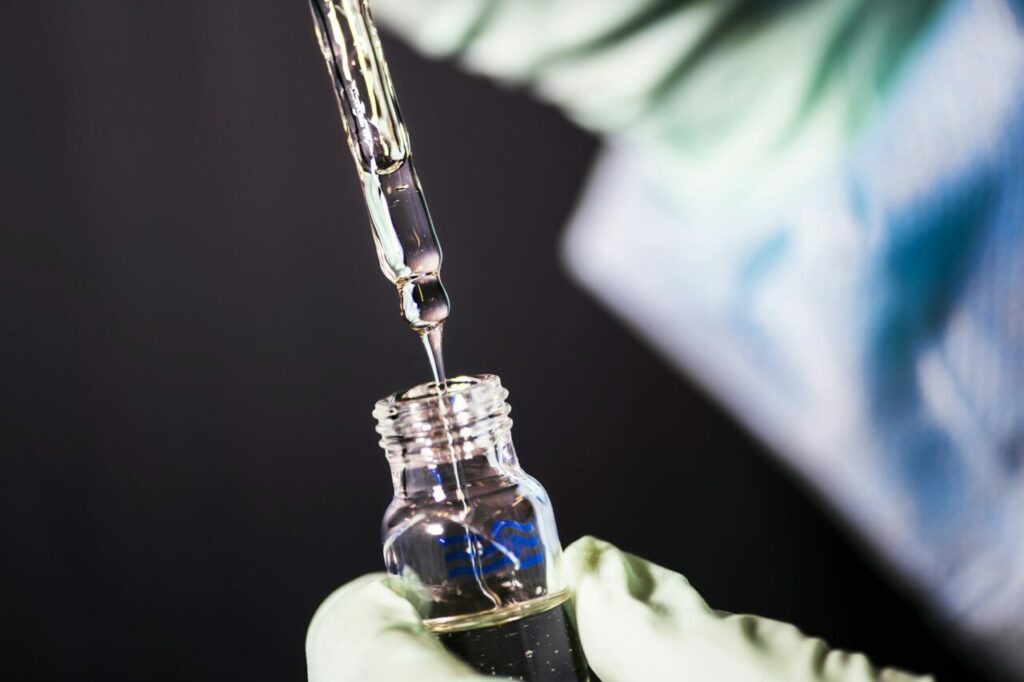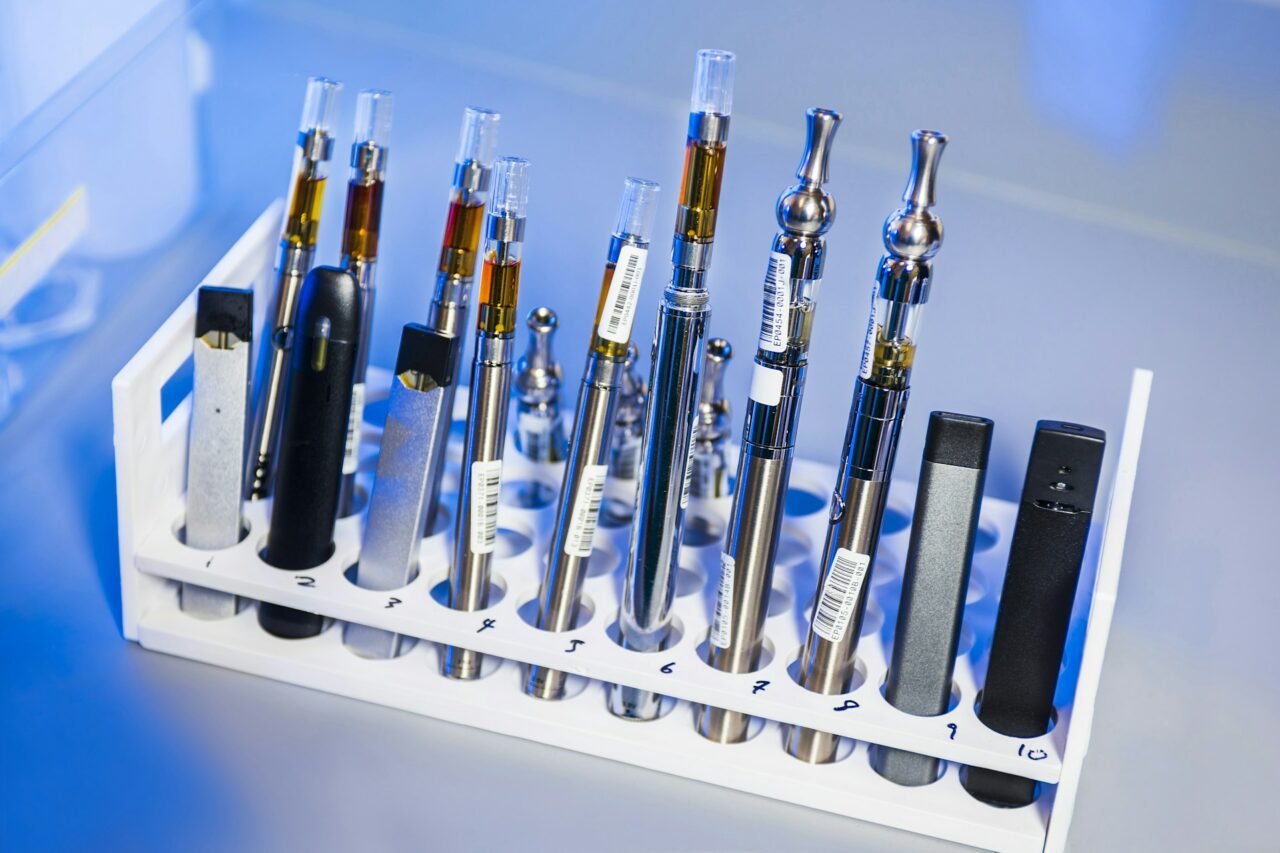The Drug Enforcement Administration (DEA) is amplifying production quotas for pioneering items like the DMT vape pen, marijuana, and other psychedelics. With Canada leading the charge, a captivating new age of understanding is emerging.
The recent announcement of increased production for certain substances opens the door to unprecedented research opportunities.
Key Takeaways:
- The DEA aims to increase production quotas to 20,000 grams of psilocybin and 11,000 grams of dimethyltryptamine by 2024.
- The spirit molecule disrupts repetitive thinking and enhances brain and cognitive function.
- Advocating for an increase in these substances could advance medical science and present more affordable alternative treatments.
DEA’s 2024 Vision: A Step Towards the Future of Psychedelics
In a significant move towards strengthening research capabilities, a recent proposition by the DEA suggests a production increase of certain controlled substances for scientific investigation in 2024. This reflects the growing recognition of the need for larger amounts to meet medical and research demands.
Insights into the Proposal
The revised proposal considerably ramps up production quotas, signaling a rising commitment to clinical trials. For instance, the target for some substances has nearly doubled, with the production cap set at 20,000 grams for psilocybin and 11,000 grams for DMT vape cartridges.
These changes reflect a direct response to feedback from licensed manufacturers, who emphasized the need for larger amounts to support ongoing and future research. The production goals for related compounds have remained high to ensure a steady supply for therapeutic investigations.
Potential Benefits for Scientific Research and Therapeutic Uses
The increased availability of these substances could carve new avenues for scientific pursuits, particularly in determining their therapeutic potential. As more research is conducted, scientists may uncover novel treatments for various conditions, including mental health disorders.
This heightened focus not only has the potential to expand our knowledge but also aligns with the growing public interest in alternate therapies. These changes could propel medical science forward and offer more cost-effective treatment alternatives than traditional methods. treatments.
Pioneering Investigation: Present and Future Research into Dimethylamine and Psychedelics in Canada
Alternative therapy options have gained significant attention in Canada, with recent progress suggesting a potential transformation in mental health treatment.
In 2021, substances known for their psychological benefits sparked increased interest, despite a subsequent market slowdown. However, ongoing clinical trials continue to show promising outcomes.

Current Situation
On December 5th, 2022, Health Canada released a Notice to Stakeholders, outlining expectations for risk-management measures in clinical trials involving psychedelic-assisted psychotherapy. In Canada, differing strategies are adopted by individual provinces for the regulation of psychedelics and their research:
| Ontario | The Centre for Addiction and Mental Health (“CAMH”) received the first Canadian federal grant for psilocybin research. |
| Alberta | Approval granted for therapeutic use of specific psychedelics, including psilocybin, psilocin, ketamine, LSD, MMDA, and DMT. |
| University of Guelph | Received Health Canada’s permission to grow psilocybin-containing mushrooms. |
| Saskatchewan | The Linden Medical Centre provides support for PTSD patients to access psychedelics. |
| New Brunswick | Home to a network of private clinics offering PTSD treatment with ketamine. |
| British Columbia | Has decriminalized personal possession of specific substances. |
| Quebec | Mindspace by Numinus legally administers psilocybin and MDMA for treatment-resistant depression and PTSD. |
Potential Areas of Research
There are several promising areas of potential research, particularly regarding the therapeutic uses of dimethyltryptamine and psilocybin. As the evidence of their effectiveness continues to increase, future research could focus on:
Each DMT vape pen cartridge usage offers a unique and different experience, according to one user. “After the first puff, I experience extreme relaxation and the colors around me become incredibly vibrant,” she narrates. “I feel weightless, as if floating in water, yet firmly held by an unseen force.“
Entrepreneur Tim Leonard describes a profoundly intense experience: “It felt as if my soul left my body and entered a divine realm.” He saw “a semi-transparent human skull with a brain pulsing with colors and energy,” imparting a profound message about the miracle of human existence.
The Rise of Vapor Pens: A Guide for Conscious Users
The explosive popularity of high-grade DMT vape pens and cartridges has transformed the way people engage with this substance. These small devices provide a discreet and convenient way to enjoy the benefits. The increasing number of users highlights the importance of responsible usage and staying informed about ongoing research.
- Educate Yourself: Stay updated with reliable sources for news about studies and regulations. Keep abreast of clinical trials and their outcomes, which can provide useful insights about safety and efficacy.
- Know Your Product: Purchase from reputable vendors that offer clear labeling and quality assurance. Understanding what your product contains can contribute to a safer experience.
- Use with Caution: Start with smaller quantities to determine your reaction. Conscious consumption can lead to more enjoyable experiences.
- Join the Community: Engage in discussions with other users and medical professionals. Sharing experiences and knowledge fosters a supportive environment and encourages responsible use.
The Future: How Canada’s Online Dispensary is Preparing for the Psychedelic Wave – Where to Purchase Vape Pens
As our comprehension of mental health advances through research,
Shrooms Near Me Canada offers expertly curated selections for every exploration, acting as your dependable online dispensary for high-quality psilocybin products. Our mission is to make your journey into the fascinating world of psychedelics smoother and more accessible.
The recent attention from the DEA towards psychedelic research has amplified interest in this field, hinting at a plethora of compelling opportunities in the near future.
Frequently Asked Questions
Can individuals access the substances requested for study by the DEA?
No, the substances under review by researchers are not publicly available. If you’re interested in securing a DMT vape cart or any of the substances mentioned, your options would be to visit a treatment center offering these or to purchase them from an online dispensary.
How does dimethyltryptamine differ from other psychedelic substances?
Dimethyltryptamine stands out among psychedelics due to its powerful effects and brief duration. Contrary to LSD, which can modify neural activity over a prolonged period, dimethyltryptamine induces a short yet deeply engaging alteration in consciousness, marked by vivid visual patterns and a variety of other experiences.
What mental health condition has shown improvement with the use of dimethyltryptamine?
Various studies suggest that this compound can trigger immediate antidepressant effects in patients the day following treatment. Another study examined its impact on mental health outcomes among healthy volunteers. The primary aim is to reduce symptoms of depression and anxiety.





